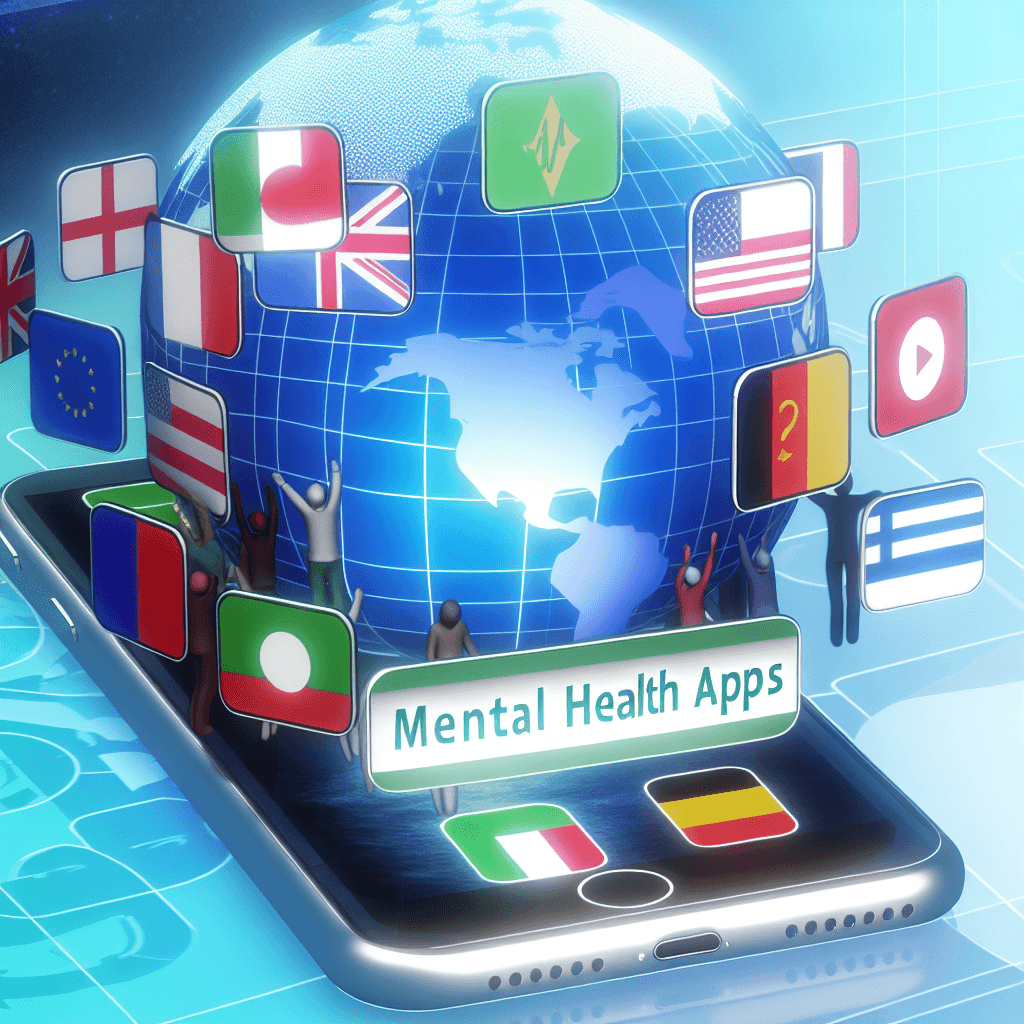Explore the expanding global mental health apps market, driven by rising awareness and technological advancements in healthcare.
Global Mental Health Apps Market

Table of Contents
Exploring the Global Mental Health Apps Market

The global mental health apps market has seen a significant surge in recent years, driven by increasing awareness of mental health issues and the widespread availability of smartphones. This article delves into the dynamics of this market, exploring its growth, key players, and the impact of these technologies on mental health care.
Market Overview
The mental health apps market encompasses a variety of applications designed to assist users in managing their mental health conditions or improving their overall psychological well-being. These apps offer a range of functionalities, including mood tracking, meditation, stress management, and therapeutic exercises.
According to a report by Grand View Research, the global mental health apps market size was valued at USD 4.2 billion in 2021 and is expected to expand at a compound annual growth rate (CAGR) of 16.5% from 2022 to 2030. This growth is attributed to several factors, including the increasing prevalence of mental health disorders, rising focus on preventive healthcare, and greater use of mobile technology.
Drivers of Growth
- Increasing Awareness: There is a growing recognition of the importance of mental health, paralleled by a decrease in stigma associated with seeking help.
- Technological Advancements: Innovations in AI and machine learning have enabled the development of more sophisticated and personalized mental health apps.
- COVID-19 Pandemic: The pandemic has had a profound impact on global mental health, driving demand for accessible and immediate mental health services.
Key Market Segments
The mental health apps market can be segmented based on the type of app, platform, and end-user:
- Type of App: Stress management, anxiety reduction, depression management, and others.
- Platform: iOS, Android, and others.
- End-User: Individuals, psychologists, and mental health organizations.
Geographical Insights
The North American region holds a significant share of the mental health apps market, attributed to high awareness levels, technological advancements, and the presence of major players. However, Asia-Pacific is expected to witness the highest growth rate due to increasing smartphone penetration and growing awareness of mental health issues.
Impact of Mental Health Apps
Mental health apps have the potential to transform the landscape of mental health care by providing more accessible, affordable, and anonymous support. Here are some of the ways these apps are making a difference:
- Accessibility: Apps can reach people in remote or underserved areas where traditional mental health services may not be available.
- Cost-Effectiveness: Many mental health apps are free or low-cost, making them more affordable than traditional therapy.
- Anonymity: Users can seek help without fear of stigma, as apps offer a level of privacy that face-to-face therapy might not.
Challenges and Considerations
Despite their benefits, mental health apps face several challenges that need to be addressed:
- Data Privacy: Handling sensitive personal information raises concerns about data security and privacy.
- Regulation: The lack of standardized regulations can lead to the availability of apps that are not clinically validated.
- Dependence: There is a risk that users may over-rely on these apps, potentially neglecting more comprehensive care options.
Case Studies
Several case studies highlight the effectiveness and challenges of mental health apps:
- Headspace: This meditation app has been shown to reduce stress and improve focus, with numerous user testimonials supporting its efficacy.
- Talkspace: A therapy app that connects users with licensed therapists, Talkspace has expanded access to mental health care but also faced scrutiny over privacy concerns.
Future Outlook
The future of the mental health apps market looks promising with continuous advancements in technology and a deeper integration into traditional health care systems. Innovations such as AI-driven personalization and the incorporation of virtual reality (VR) are expected to further enhance the effectiveness of these apps.
Conclusion
The global mental health apps market is poised for significant growth, offering promising solutions for improving mental health care accessibility and effectiveness. While challenges such as data privacy and regulation need to be addressed, the potential benefits of these apps in supporting mental health are undeniable. As technology continues to evolve, it is likely that mental health apps will become an integral part of the broader health care ecosystem, providing valuable tools for individuals seeking to improve their mental well-being.
In conclusion, the mental health apps market represents a dynamic and rapidly evolving sector with the potential to significantly impact global mental health care practices. Stakeholders in the health care industry, technology developers, and policymakers must collaborate to ensure these tools achieve their full potential while safeguarding user privacy and ensuring clinical validity.








